
MLIR Testing with Teeth
The MLIR ecosystem has a dirty secret: its testing infrastructure is built on regex and prayer. While MLIR itself represents a triumph of progressive lowering and type-safe compilation, the tools used to verify its correctness, lit and FileCheck, operate at the level of untyped string matching. This isn’t just an aesthetic concern. For frameworks like Fidelity that need to prove semantic preservation through compilation, text-based testing is fundamentally inadequate. This entry examines the structural limitations of mainstream MLIR testing and explains why the Fidelity Framework requires, and is building, a fundamentally different approach.
Read More
Introducing Conclave
Conclave: A sequestered location for confidential deliberation and decision-making. Organizations considering agentic AI …

Achieving Safety In a Universally Contested Future
Post-quantum cryptography is coming, and companies that host “contested” technology environments need to …
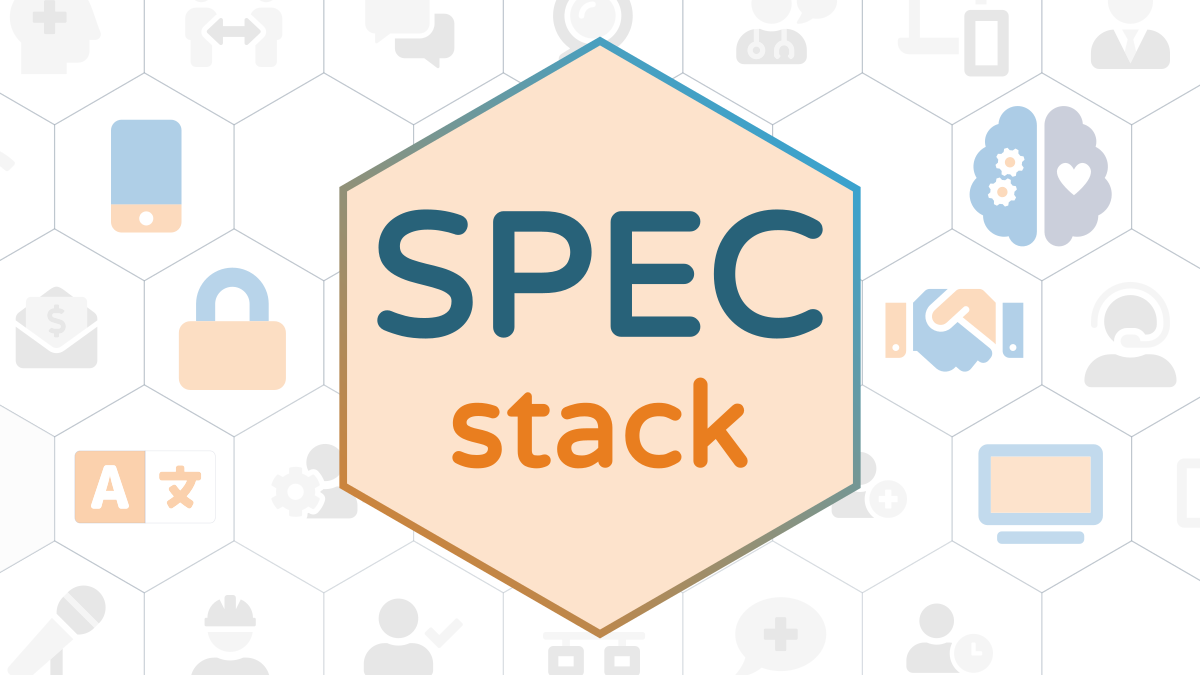
Designing D3 into Partas.Solid
The convergence of Partas.Solid (web site) and D3.js represents a strategic opportunity to establish a new paradigm for …

The SPEC Stack: A Proposal
The SPEC stack represents our vision for a unified approach to principled web development, centering on syntactic …

Victor: A Tool for Managing the SPEC Stack
Victor is our idea of a command-line tool which merges static site generation traditions with modern reactive web …

A Vision For Unified Cognitive Architecture
AI’s Berlin Wall In our exploration of neuromorphic computing, we examined how specialized hardware might finally …

Unexpected Fusion
The story of distributed systems in F# begins with two distinct programming traditions that converge in F# in unique …

A 50 Year Odyssey: Actors Take Center Stage
The actor model isn’t new. Carl Hewitt introduced it at MIT in 1973, the same year that Ethernet was invented. For …

Breaking the P vs NP Mystique
The technology industry has developed an unfortunate habit of wrapping straightforward engineering advances in mystical …

The DCont/Inet Duality
F#’s computation expressions represent one of the language’s crown jewels - a unified syntax that makes …
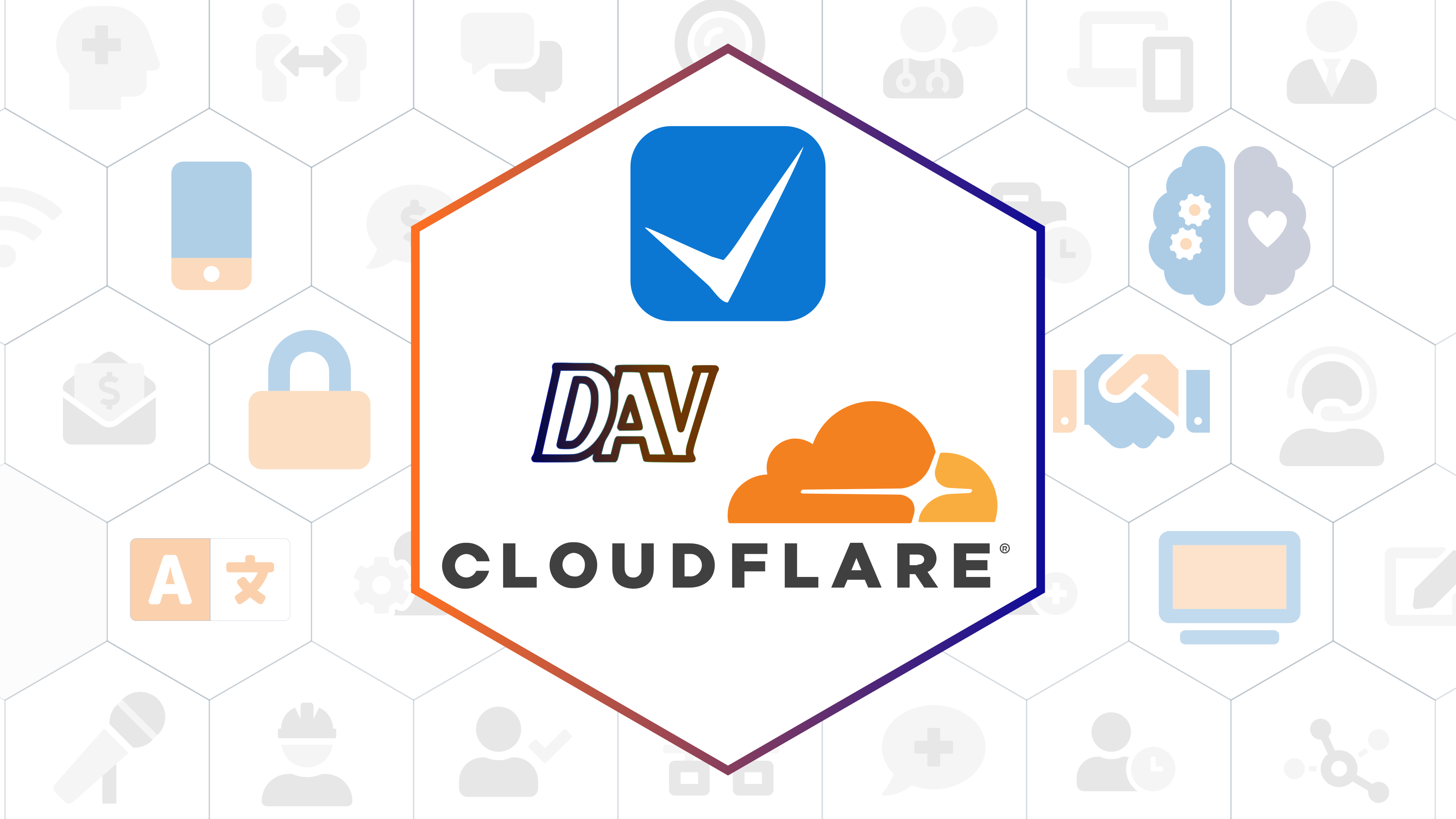
Your Data, Your Rules
If you haven’t discovered Super Productivity yet, you’re missing one of the most thoughtfully designed …

Cache-Conscious Memory Management: CPU Edition
Modern computing systems present a fundamental paradox: while processor speeds have increased exponentially, memory …

GPU Cache-Aware Compilation
As we explored in our companion piece on CPU cache optimization, the Firefly compiler’s Alex component is being …

The Uncomfortable Truth of Comfortable Dysfunction
In a recent YouTube interview, Tri Dao, architect of Flash Attention and contributor to Mamba, delivered an insight …

Traits Versus Statically Resolved Type Parameters
Rust’s trait system is often compared to Haskell’s type classes, suggesting that Rust has successfully …

How Fidelity Solves The Abstract Machine Model Paradox
The blog post “Abstract Machine Models - Also: what Rust got particularly right” makes a compelling case for …

Binding F# to C++ in Farscape
The challenge of binding F# to C++ libraries has historically forced developers into compromising positions: accept the …

The Advent of Neuromorphic AI
The “AI industrial complex” in its current form is not sustainable. While transformers have delivered …

Leaner, Smarter AI Cloud Systems
The promise of edge computing for AI workloads has evolved from experimental optimization to production-ready enterprise …
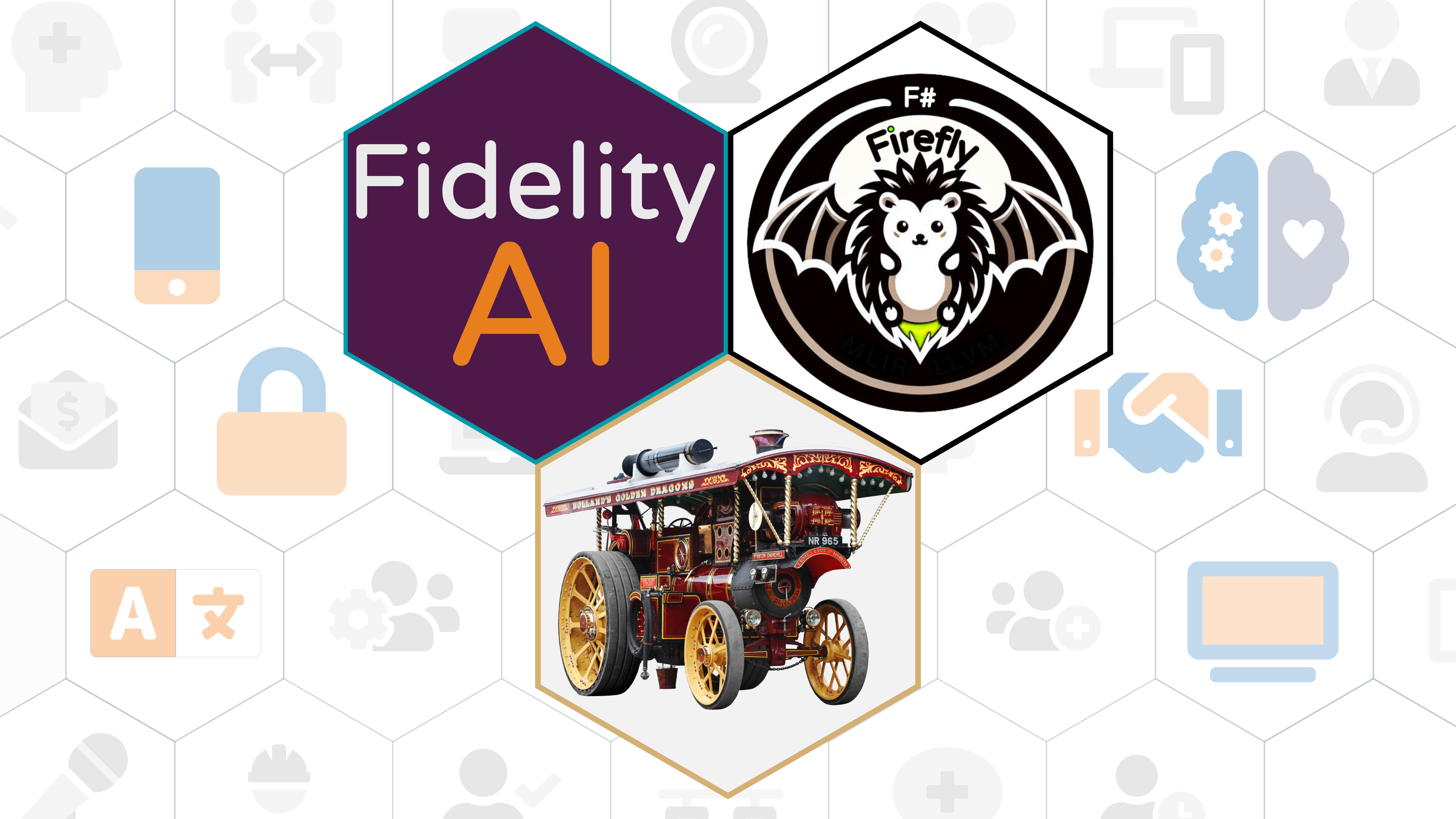
Escaping The Steamcar Era of AI
The Steam-Powered Illusion The current AI oligarchy’s greatest deception isn’t about capabilities; …

Categorical Deep Learning and Universal Numbers
A Confession and a Vision A personal note from the founder of SpeakEZ Technolgies, Houston Haynes I must admit something …

Fewer Tests; Greater Safety
Every software engineering team knows the testing treadmill. Write code, write tests, run tests, fix failures, write …

Proof-Aware Compilation Through Hypergraphs
Software verification has always forced a cruel choice: accept runtime overhead for safety checks, or trust that your …

Hyping Hypergraphs
The industry is witnessing an unprecedented $4 billion investment to finally set aside the 80-year-old Harvard/Von …

Seeking Referential Transparency
In the landscape of modern compiler design, a fundamental tension exists between preserving the elegance of high-level …

Quantum Optionality
The quantum computing landscape in 2025 presents both promising advances and sobering realities. While the technology …
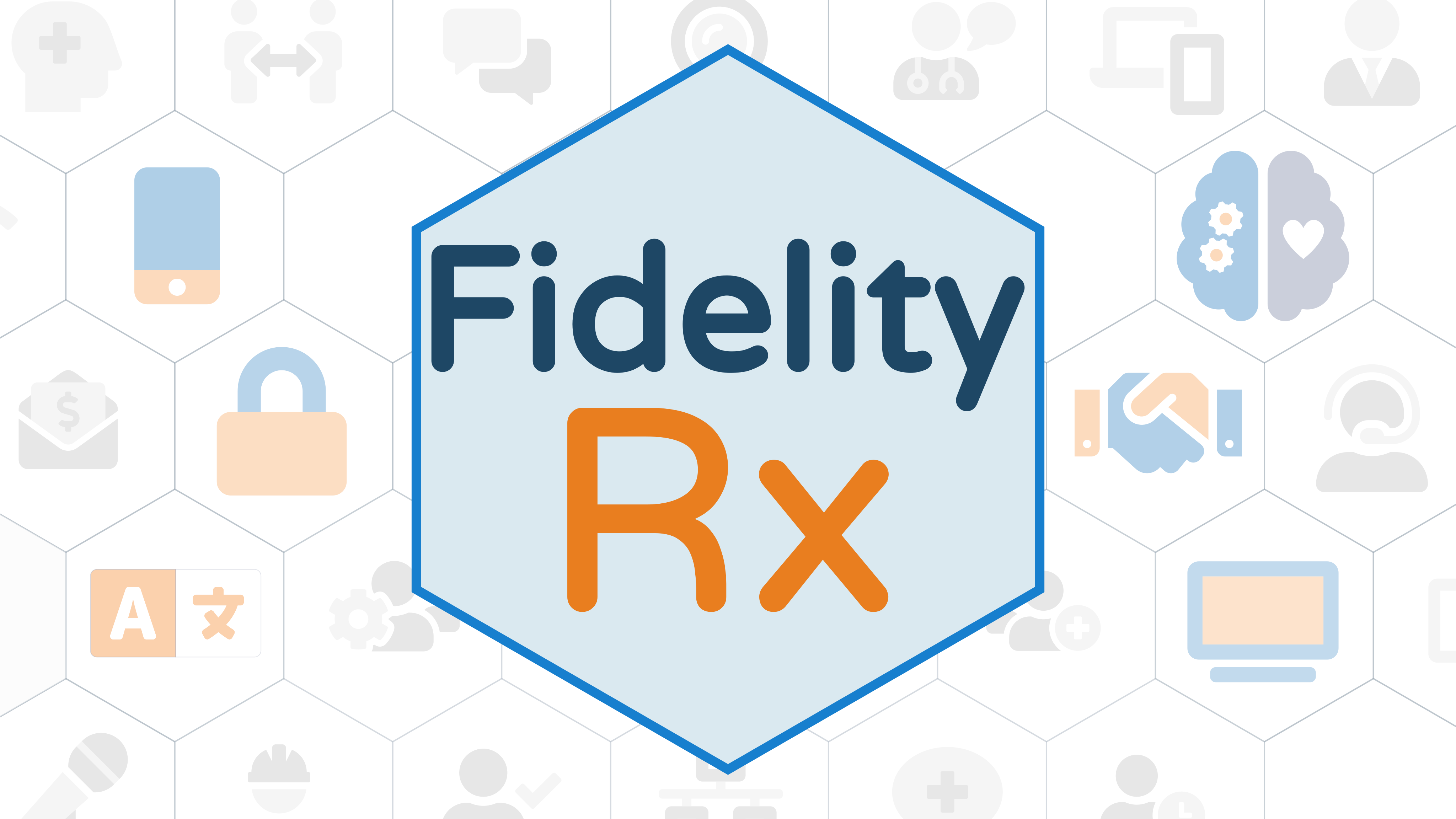
Alloy.Rx: Native Reactivity in Fidelity
The integration of reactive programming into the Fidelity framework presents a fascinating challenge at the intersection …

Coeffects and Codata in Firefly
Modern async and parallel programming presents an engineering challenge: we need both the performance of low-level …

Context-Aware Compilation
Modern processors are marvels of parallel execution. A typical server CPU offers dozens of cores, each capable of …

The Continuation Preservation Paradox
When we set out to build Firefly, we faced a fundamental question that cuts to the heart of functional systems …

Why F# is a Natural Fit for MLIR
In 1998, Andrew Appel published a paper that heralded a change to how we should think about compiler design. “SSA …
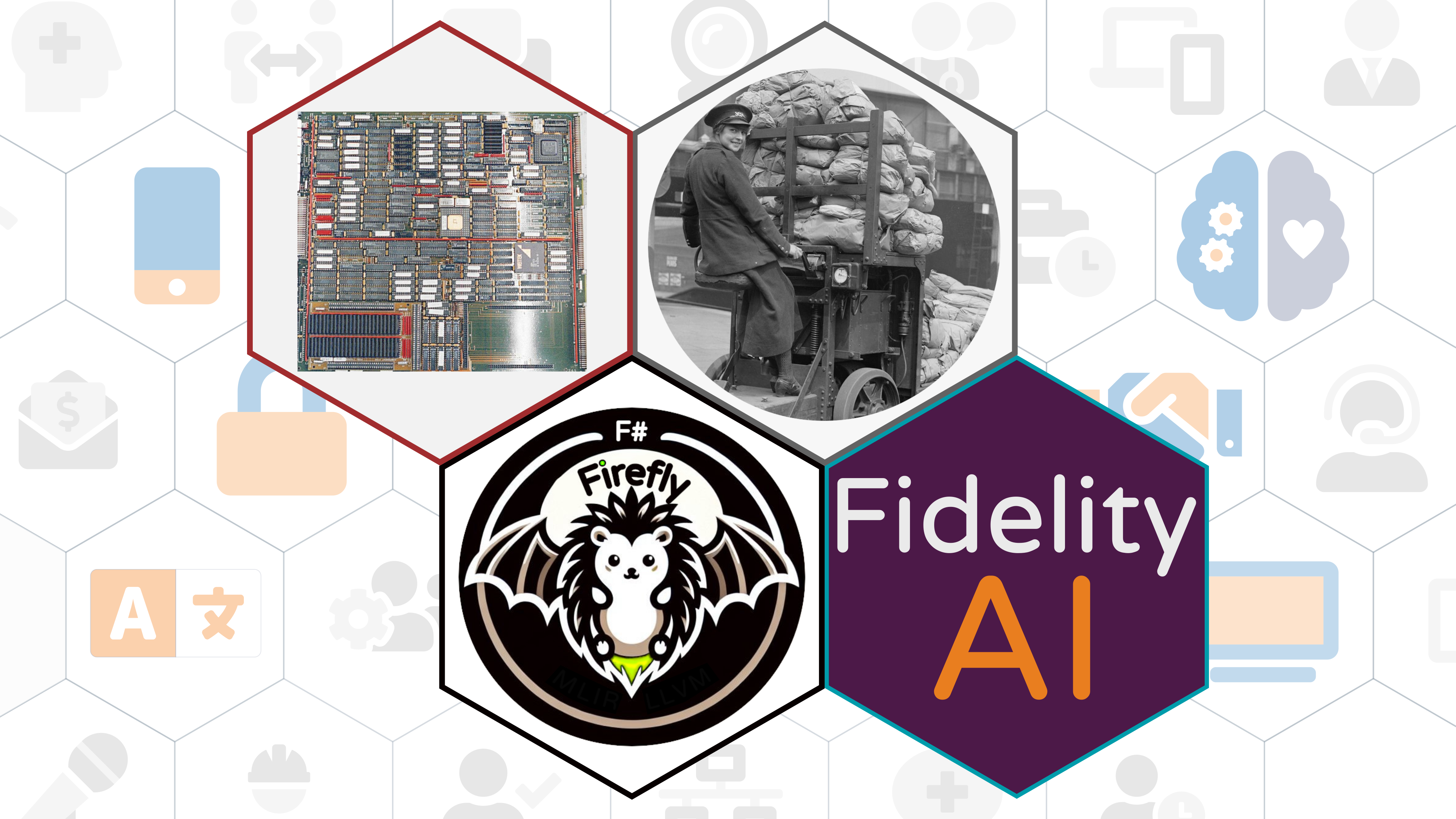
Hardware Lessons from LISP
The computing industry stands at a fascinating juncture in 2025. After decades of general-purpose processor dominance …
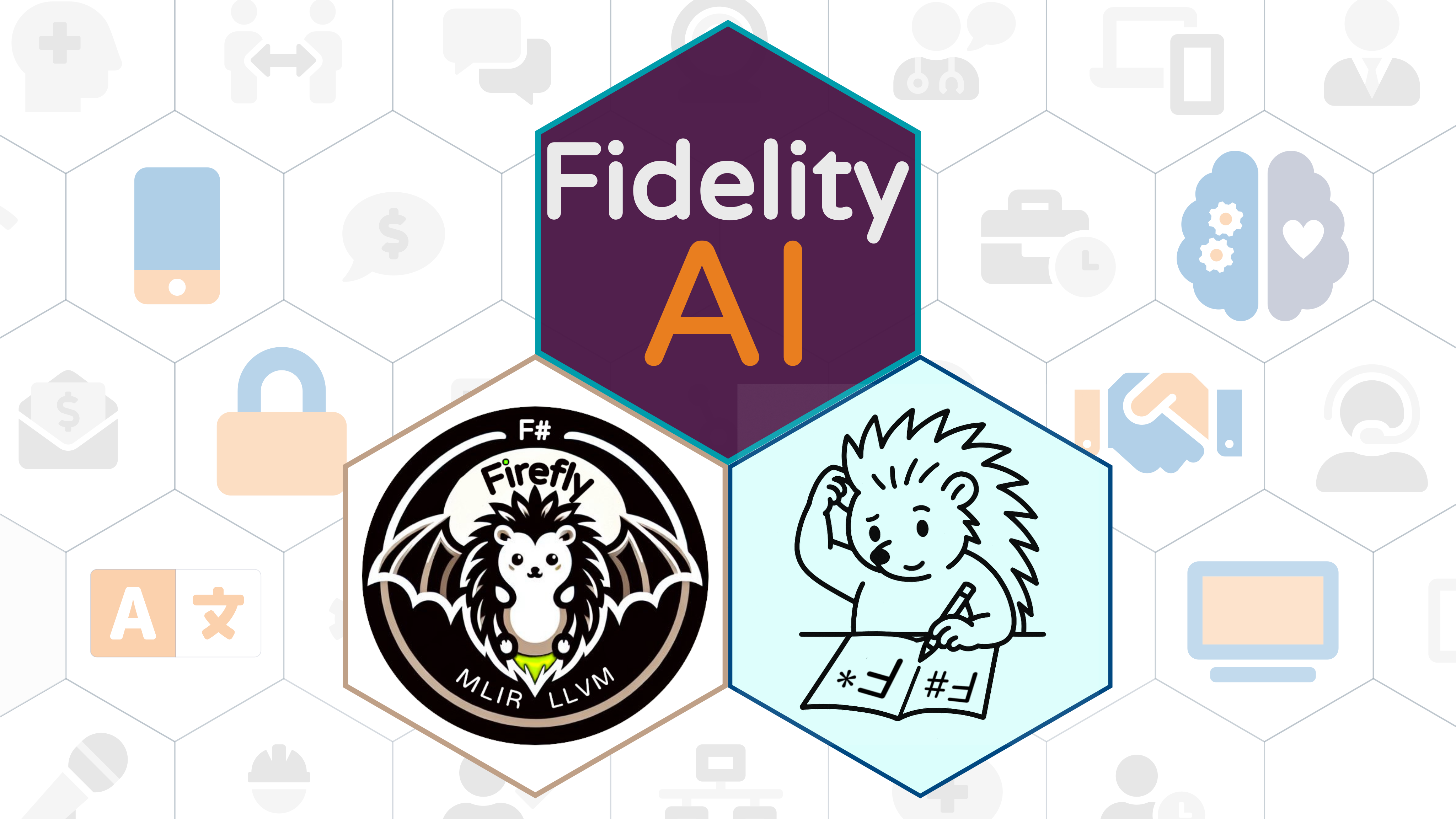
Speed & Safety with Graph Coloring
The Fidelity Framework faces a fascinating challenge: how do we identify opportunities for massive parallelism hidden …
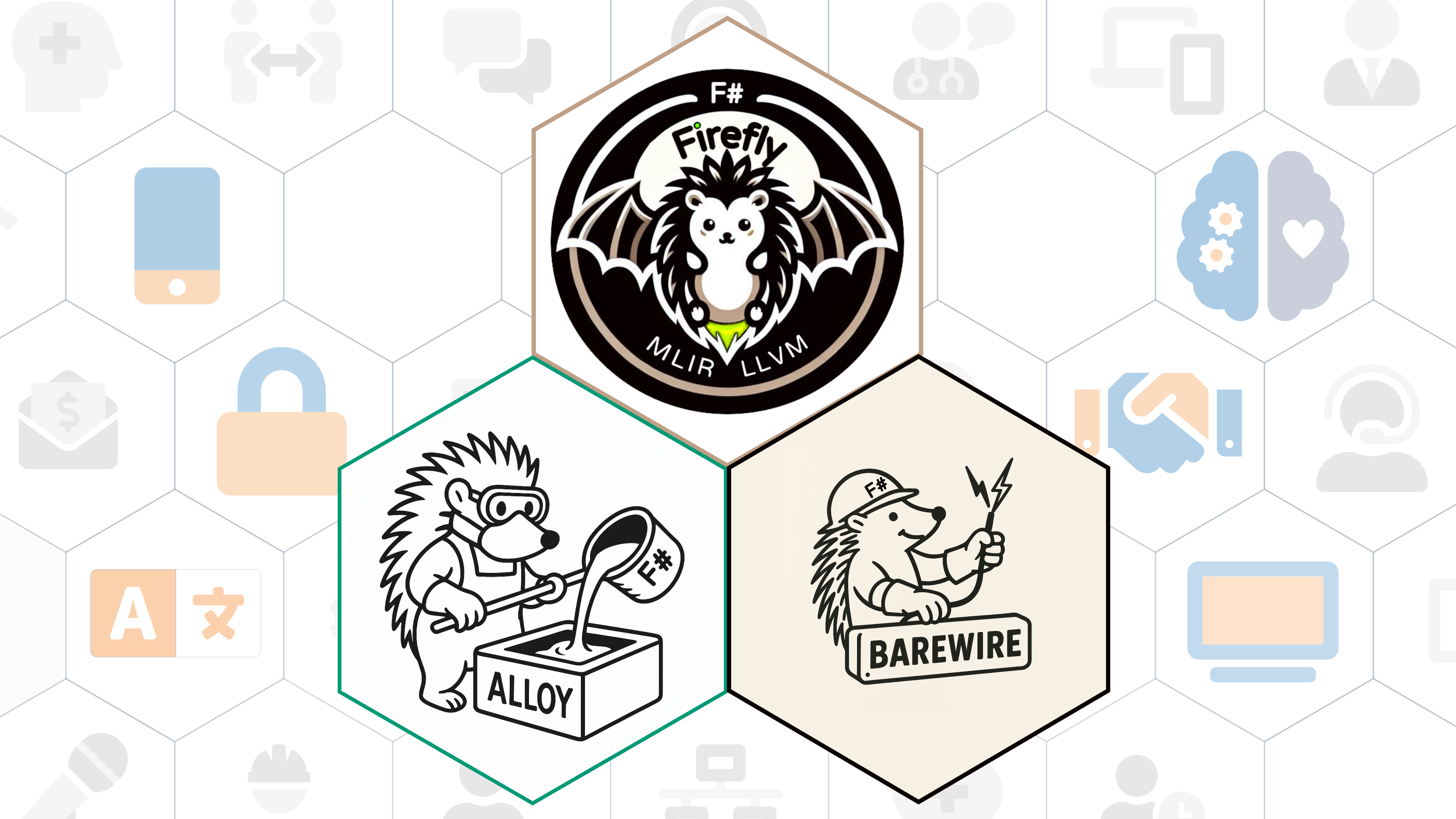
Beyond Zero-Allocation
The journey of building the Fidelity Framework has taught us that meaningful changes require careful conceptual …

Coupling & Cohesion: Structure is Speed
Software tools face an eternal tension: wait to build fast executables or speed up workflow at the cost of the end …

Danger Close: Why Types Matter
A startup’s gene analysis samples nearly melted because someone confused Fahrenheit and Celsius in their …

A Unified Vision for Ternary Models
While this idea might be met with controversy in the current swarm of AI hype, we believe that the advent of …

Code Signing in the Era of Cyber Resilience
The software industry never stands still. While in most cases this translates to technological advance, it also brings …

Discriminated Unions In Post-Transformer AI
The AI industry stands at an inflection point. As detailed in our “Beyond Transformers” analysis, the …

That 2FA Call Is Already Inside Your Network
The world got a wake-up call this week due to Bloomberg’s investigation into how “tiny middlemen” in …

Farscape's Modular Entry Points
The Fidelity framework’s Farscape CLI addresses a pressing challenge in modern software development: how to …

Intelligent Tree Shaking
When we set out to design the Firefly compiler for the Fidelity Framework, one of our core goals was to produce truly …

Wrapping C and C++
The cybersecurity landscape has shifted dramatically in recent years, with memory safety vulnerabilities accounting for …

Considering HKTs in Fidelity
The debate over higher-kinded types (HKTs) in F# reveals fundamental tensions between theoretical elegance and practical …

The Mosca Moment: Quantum Y2K
In 1993, while the tech world marveled at the newly-freed World Wide Web and debated the coming “Information …

Source-Level Dependency Resolution
The Firefly compiler represents a fundamental shift in how F# code gets compiled to native executables. Unlike …

How Our Innovations Express Our Values
The Fidelity Framework and its ecosystem of technologies represent more than technical achievements, they embody our …

Scaling FidelityUI: The Actor Model
As we’ve established in previous entries, FidelityUI’s zero-allocation approach provides an elegant solution …

The Full Frosty Experience
The Fidelity framework represents an ambitious project to bring F# to native compilation without runtime dependencies. …

Leveraging Fabulous for Native UI
The journey of creating a native UI framework for F# presents a fascinating challenge: how do we preserve the elegant, …

High Speed Inference
The future of AI inference lies not in ever-larger transformer models demanding massive GPU clusters, but in a diverse …

Accelerating Network Communication for Fidelity
As a companion to our exploration of CXL and memory coherence, this article examines how the Fidelity framework could …

Building User Interfaces with the Fidelity Framework
The Fidelity framework introduces a revolutionary approach to building desktop applications with F#, enabling developers …

ByRef Resolved
The “byref problem” in .NET represents one of the most fundamental performance bottlenecks in managed …

Static and Dynamic Library Binding in the Fidelity framework
At the intersection of two powerful but largely separate computing paradigms stands the Fidelity framework, a …

Next-Generation Memory Coherence
SpeakEZ’s Fidelity framework with its innovative BAREWire technology is uniquely positioned to take advantage of …

Toward A Transformerless Future
Note: This article was updated September 27, 2025, incorporating insights from recent research and a recent Richard …

Verifying F#
Creating software with strong correctness guarantees has traditionally forced developers to choose between practical …

Memory Management by Choice
Here at SpeakEZ we’re rethinking how developers interact with memory management in systems programming. The …

F# Async From .NET to Fidelity
We at SpeakEZ have been working on the Fidelity framework for a while, and it’s been a journey to find the right …

Frontend Unfuzzled: A Gentle Introduction to MLIR
For .NET developers, the term “frontend” already carries rich meaning. It might evoke XAML-based …

Building Firefly with Alloy
The promise of functional programming has always been apparent: write code that expresses a process to an end result, …

The Shifting Computational Landscape and Returning Primacy of Compilers
The computing landscape has undergone seismic shifts over the past three decades, yet many of our foundational software …

Fargo: Native F# Source-Based Package Management
The journey from managed code to native compilation in F# represents a significant architectural shift. As the Fidelity …

A Path Less Traveled: SpeakEZ's Innovations in Quantum-Resistant WireGuard
In the world of cryptography, a storm is brewing. Quantum computing, once a theoretical curiosity, has been steadily …

The Farscape Bridge
The computing landscape stands at an inflection point. AI accelerators are reshaping our expectations of performance …

A Window Layout System for Fidelity
The Fidelity framework aims to create a novel approach to building desktop applications with F#, enabling developers to …

The Fidelity Framework: A Primer
The computing world has fragmented into specialized ecosystems - embedded systems demand byte-level control, mobile …

Erlang Lessons in Fidelity: An Analysis
Erlang emerged in the late 1980s at Ericsson, during an epoch when distributed systems were in their infancy and …

Dimensionally-Constrained CNN to TopOC Transfer Learning
At SpeakEZ, we are working on transformative approaches to transfer learning that combine convolutional neural networks …

Beyond Transformers
Note: This article was updated September 27, 2025, incorporating insights from recent research and a recent Richard …

The Case for Actor-Oriented Architecture
This entry examines the architectural rationale behind avoiding the creation of yet another managed runtime system, …

F# Goes Metal: Fidelity's Hardware/Software Co-Design Revolution
The embedded systems industry has operated under a fundamental assumption for decades: achieving hardware control …

Musings on Mojo: Partially Parallel Paths
In the evolving landscape of programming languages, Mojo has emerged as a fascinating experiment in bridging disparate …

RAII in Olivier and Prospero
In our work to bring F# to systems programming, we’re pursuing a vision of deterministic memory management outside …

Fidelity Framework as AI Refinery
The AI industry is experiencing a profound shift in how computational resources are allocated and optimized. While the …

Pondering Python
A recent ONNX conference presentation reveals an illuminating reality about the current state of AI development …

Zero Trust Group Chat
Last year, we explored how F#’s type system could transform threshold signature security through FROST. Today, …

The Hidden Dominance of Functional Programming
When Simon Peyton Jones, one of the creators of Haskell and a renowned researcher in functional programming, explains …

F# Memory Management Goes Native
In the coming waves of “AI” innovation, the computing landscape will continue to fragment into an …

Rust Revisited: A Study of Similarities and Contrasts
The Rust programming ecosystem has transformed how the software industry views systems programming. By pioneering its …

Seeing Beyond Assemblies
The .NET platform introduced the concept of assemblies over two decades ago, a fundamental building block that has …

Cryptographic Certainty
In the world of distributed systems, trust is fundamentally a mathematical problem. For decades, organizations have …

The Twilight of Lazy Lock-in
The software industry has perfected a peculiar form of value extraction that emerges not through direct coercion or …